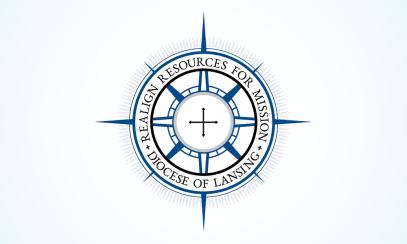
Faith and Finances
In a recent address to the World Bank Group, Pope Francis stated, “The pandemic … has reminded us that ‘no one is saved alone.’” (Vatican News, Apr. 8, 2021) As schools and parishes reopen, post-pandemic financial challenges are still facing many families. Lost income and job reduction due to lockdown restrictions, combined with increased childcare and other unforeseen expenses, have caused unprecedented hardships for many families. Yet despite the short-term challenges, there are also signs of hope – including resources for families who need help getting their finances back on track.
With 22.2 million jobs lost since 2019, only about half of which have been recovered (Reuters, WRAPUP 5- U.S. economy loses jobs, Jan. 8, 2021), credit card debt might have significantly increased in the past year. Surprisingly, this is not the case: While the debt load has shifted nationwide, there has been an increase in “good debt” (mortgage and student loan debt is linked to long-term consumer benefits) – and a corresponding decrease in “bad debt” such as credit card debt. (Experian, Average U.S. Consumer Debt, Apr. 6, 2021) By greatly reducing – or eliminating – credit card debt and finance charges, families are finding money to put toward other financial goals – such as emergency funds, or college or retirement funds. This kind of intentional spending is helping families to finance a brighter future.
WHAT IS “INTENTIONAL SPENDING”?
In their book A Catholic Guide to Spending Less and Living More, the husband and wife team of Rob and Sam Fatzinger tell how they managed to raise 14 kids on one modest income – debt-free – with a remarkable combination of intentional spending, disciplined saving and avoidance of credit-card debt.
Intentional (or “mindful”) spending, says Rob, “is spending money consciously after assessing your needs prudently and considering your options diligently.” (p. 45) He identifies four key steps to this process:
Step 1: Figure out your highest priorities and goals. This will vary from one person or family to the next: a down payment on a house, school tuition or even a dream vacation.
Step 2: Create a budget. List all income sources and expenses, including recurring expenses as well as one-time or unexpected expenses from the past year. Use this information to create a budget that will reflect both your priorities and needs.
Step 3: Work your way out of debt. Do whatever is necessary to pay off credit cards and other personal debt – even if it means getting a second job, packing a lunch and brewing your own coffee! If you have a tendency to overuse credit, switch to debit cards or a cash-envelope system instead.
Step 4: Save and have fun. Don’t be a Scrooge! Make the most of the free local offerings in your community. Have fun finding the best deals! When possible, give each person a little “mad money” each month to spend the way they want – the key is not total deprivation, but spending intentionally.
As Catholics, we can let our faith inform our financial priorities in three important ways.
FAITH AND FINANCES
Practice gratitude
Caitlyn Kano, executive director of Compass Catholic Ministries, says: “The cycle of debt can feel isolating, but you are not alone! To start reversing course, take a minute and thank God for something, anything. Gratitude shifts our mindset from scarcity to abundance. Gratitude boosts physical and mental health, improves decision-making, and increases our sense of contentment. With gratitude, you can start to interrupt the debt cycle.”
Be generous
Pope Francis’ observation that “no one is saved alone” is being demonstrated in a powerful way in post-pandemic America: MarketWatch recently reported an increase in charitable giving to faith-based organizations. While the first months of 2020 saw a reduction in donations across the board, in the second half of 2020, donations surpassed the previous year’s totals. “Human service organizations – which includes groups like the Salvation Army and YMCA – and faith-based groups saw the biggest increase in donations in 2020.”(Charitable giving rose in 2020, Feb. 22, 2021)
When times are hard, local donations of time and money, including repurposing and family-to-family sharing, are helping many Catholic families stay afloat. “We couldn’t survive if it weren’t for our generous parish community,” says Sam Fatzinger. “We help each other – and nobody is afraid to put a need out there, because we all know that sooner or later, we will have a chance to pay it forward.”
Trust in God’s providence
Did you know almost 2,400 verses in the Bible pertain to money and possessions? (churchleaders.com, 2,350 Bible Verses on Money, 2017) Throughout the Gospels, and especially in the sixth chapter of Matthew, Jesus taught important principles of good stewardship: Be generous in secret (6:2-4), prioritize heavenly over earthly treasure (6:19-20), and trust in God rather than money (6:24). “Seek first the kingdom of God and his righteousness,” Jesus reminds us. “And all these things will be given you besides.” (Mt 6:33)
When we see everything as being “on loan” from God, it can be easier to trust him in tough times. I was in high school when this lesson was impressed upon me in a powerful way. Growing up, my parents frequently struggled to keep us fed and clothed because of chronic medical expenses. The year we decided to throw caution to the wind and welcome a Finnish exchange student, another stack of medical bills hit Dad’s desk just as we were expecting her parents to visit us at Eastertime. “We’re going to trust God,” my father told us as we got ready for church one Sunday morning. And when we got home that afternoon, we found eight large boxes of groceries on our front porch – along with a triple-layer chocolate cake for dinner that night. God didn’t make the bills magically disappear – Dad worked most of his life to pay them off. But we had enough to feed our guests … and that kind gesture from an anonymous friend forever bolstered my faith in the abundant love of the God who never leaves us alone.
Heidi Hess Saxton is a “sandwich generation” wife, mother, and caregiver as well as senior acquisitions editor for Ave Maria Press. Her website “Life on the Road Less Traveled” offers a free downloadable called “The 40 Day Marriage Adventure,” based on the Prayer of Abandonment by Charles de Foucauld. If your marriage needs a “faith lift,” go to heidisaxton.com.
A Catholic Guide to Spending Less and Living More is available online at Ave Maria Press.
For more information about Compass Catholic Ministries, go to compasscatholic.org.



